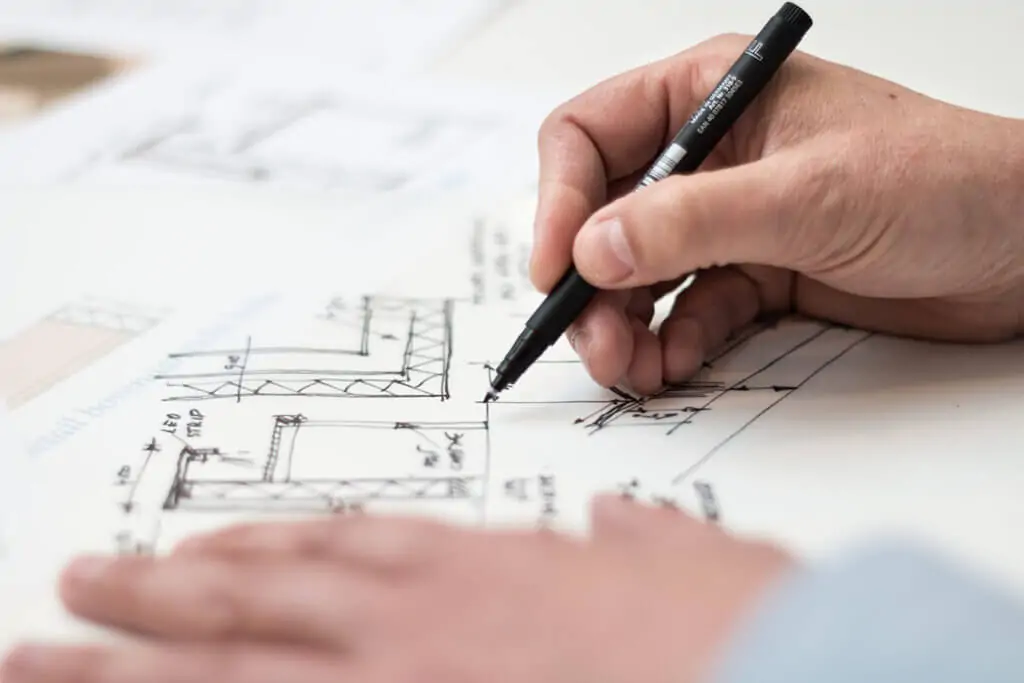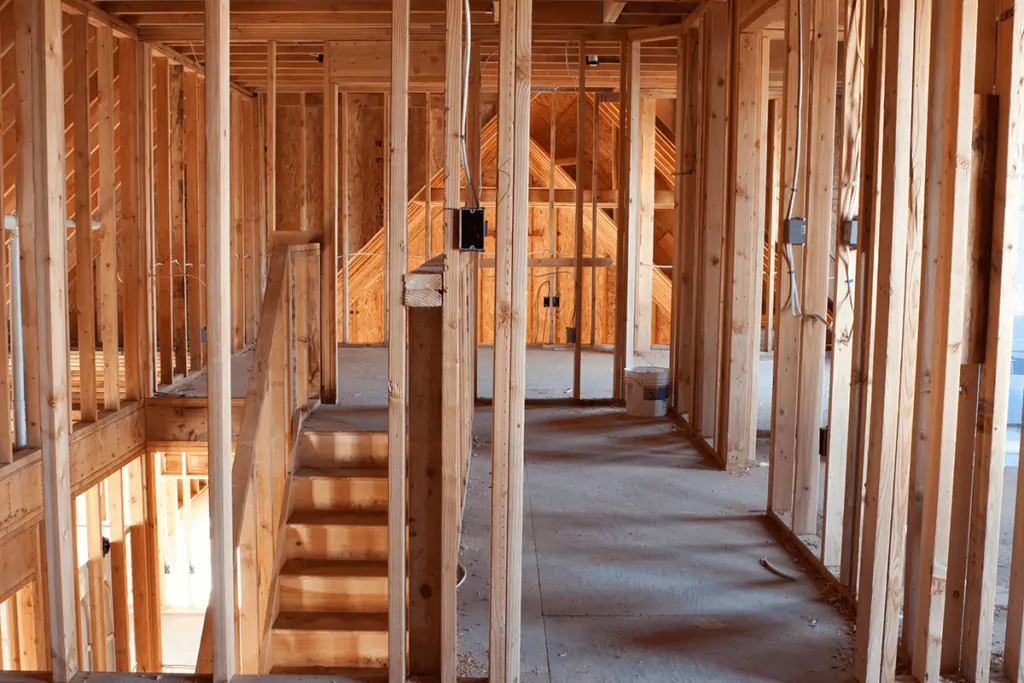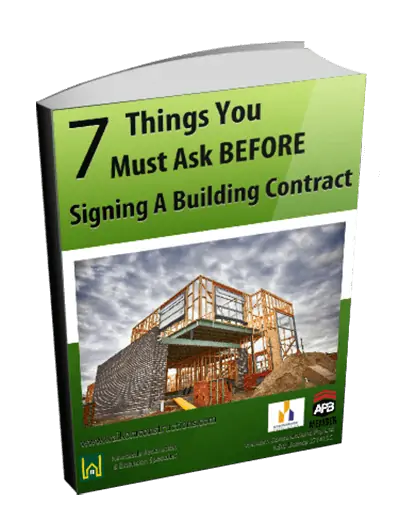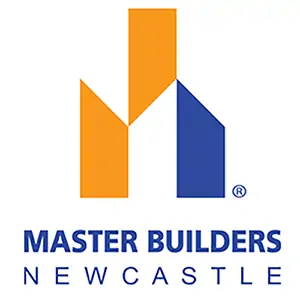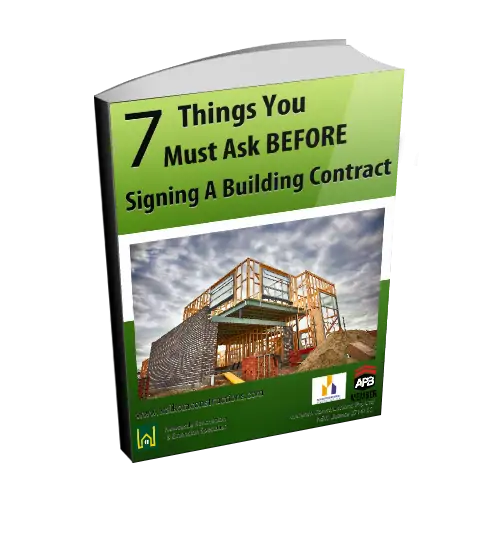So, you’ve weighed up your options and you think a home extension is going to be a viable option for your family. Great!
Now comes the logistics of working out what exactly you want and whether you can afford it.
Don’t worry, it’s not uncommon to feel overwhelmed when it comes to home extension costs. If you’ve never completed any renovations or extensions before then it can be confusing to work out what exactly you need to account for in your home extension budget.
Read on to find out just what costs you need to consider when undertaking a home extension.
Preliminary Costs
Preliminary costs are all about paying experts to gather all the relevant data and information about your property and project and compiling it all into plans and reports. From these plans and reports a builder can then price up the project and your local council can determine if the project can proceed… Confused yet? Let’s break it down a little further.
Preliminary costs will include any or all of the following:
Design Fees – This is the cost to work with a Building Designer, Draftsperson or Architect to create plans or working drawings for your home extension. The plans will show how big the extension will be, where it will be and what materials and finishes it will be constructed of. Both a Building Designer and Architect will have a good understanding of the building laws and requirements and, along with your builder, can advise you on the best design and layout for your extension.
Soil Tests & Engineering – Soil tests are carried out by an Engineer who will take samples of soil from the extension site and determine what type and size of foundations you will be needed for your extension. The Engineer will also create a report and engineering plans to ensure your home extension will be structurally sound.
Other Consultants – Some other consultant fees that you may have to factor in include surveyors and energy-efficient assessors. If you don’t already have a survey plan of your property then this will be a requirement for your DA submission.
As too will be a BASIX certificate if you are undertaking renovations of more than $50,000. A BASIX certificate can be obtained online or via an energy-efficient assessor.
Private Certification and Council Lodgement Fees – Nearly all home extensions require a Development Application (DA) lodgement to your local Council. This process can either be quite straightforward or long and drawn out depending on your council, the size of your extension, any relaxation requirements and any other constraints on your property, such as character overlay or heritage listing.
A Private Certifier handles the entire Development Application process, along with managing the inspections on your home extension throughout the entire construction process. Both the DA Lodgement fee and Private Certification fee will need to be added to the budget.
So, all the preliminary reports, plans and tests will be included in your DA application to Council, and will also be used by your builder to accurately price up the full home extension construction costs. If you have a builder on board early in your project, they can help coordinate all necessary consultants and track the progress of your project as it works its way through the preliminary stage. This will make the entire process much smoother for you.
And while it can be impossible to determine just exactly how much your home extension will cost at the beginning, your builder will be able to give you estimates once they’ve gotten a firm understanding of what you want to achieve with your home extension. (We give a rough outline of costs over on our FAQ page).
Construction Costs
This is the one question nearly everyone wants an answer to right off the bat… How much are the build costs? It’s pretty much the same as asking how long is a piece of string? Any figure you receive prior to doing any preliminary investigations and having your extension design finalised is simply going to be a ballpark figure.
It is almost impossible to compare your home extension costs with any other home extension and provide an accurate ‘rough guess’. The good news is, once you have all the preliminary work complete and your extension design locked in, then an accurate price can be provided.
When your plans are complete and you know what materials, finishes and fixtures you want to include in your home extension, your builder will be able to go through everything and give you more accurate costs.
Building costs can include any and all of the following:
- Machinery and labour-hire
- Concrete, steel, formwork
- Framing
- Plasterboard
- Skirting and architraves
- Doors
- Windows
- Roof and guttering
- Cabinetry
- Flooring
- Tiles and waterproofing
- Insulation
- Paint
- Appliances
- Lighting & Electrical
- Plumbing & Plumbing Fixtures
- Landscaping
All up, there is a lot to factor in and a lot that can affect your costs (and anyone who has ever been to Bunnings, knows there are at least 20 options for any one thing and the prices can vary significantly). This is not even factoring the extra cost of sourcing matching or heritage pieces so your extension blends perfectly with your existing home. (Often there is a work-around, but sometimes it does impact the cost.)
If you are getting a few quotes for building work, make sure you are comparing apples for apples. A quality builder will provide a proposal that includes absolutely everything laid out in a clear and concise manner (think 15 to 20 pages long), while other builders will provide simplified and vague quotes that can lead to confusion on what is included and what is not. The latter, my friend, opens the door to lots of variations and along with it, significant budget blowouts!
When going through your builder’s quotes and home extension costs, make sure the quote includes every single element so you are getting an accurate price. If you’re not sure, ask.

Incidental Costs Incurred During Construction
Some of the home extension costs that many homeowners overlook when extending their home are the incidental and lifestyle costs that can be incurred when construction is underway at your home.
If your home extension is extensive, you may want to relocate during part of all of the construction work. Any relocation costs need to be factored into your budget. Also, think about your kitchen and bathroom areas. Are they going to be impacted by the renovation work? And if so, will you have alternatives available for washing and cooking?
It might be worthwhile renting a temporary bathroom and thinking about easy meal options for as long as needed through the extension work… For the sake of your sanity.
As renovation and extension experts, we consider the needs of our clients first and foremost and will work with you and your family to minimise disruption as much as possible, however, it is always a good idea to think and plan ahead.
You may also find that your electricity and water costs may go up during the construction period. Most of the time, the costs are not drastic, unless of course, you are filling a new pool.
Other Home Extension Costs to Consider
Before work commences on your home extension, we recommend you speak to your insurance company about your cover during and after construction. All good builders will have the project fully insured for your (and their) protection during construction, however, this insurance is unlikely to include incidents relating to the existing home and contents.
It’s always a good idea to check with your current insurer to make sure you are still covered for theft, fire and flood while your home is under construction.
Still on the topic of insurance, you will have to reconsider your building and contents insurance policies once your home extension is complete. Your home will no doubt have gone up in value and will cost more to be rebuilt should it burn down, so your insurance policy will need to be adjusted.
Buying additional furniture and accessories for your new space will also need some thought. We haven’t seen anyone yet unable to afford to buy furniture for their new home extension, but we would hate for that to happen. So don’t forget to put it in the budget.
Heating and cooling of your new space will also need consideration. If you have just added a full second storey to your home, then your heating and cooling costs will go up. But with a bit of forethought and extra planning, incorporating extra energy efficient measures within the build (insulation, solar panels, fans and cross ventilation for example) can minimise these costs.
How to Get Started with Preparing Your Home Extension Costs
While the information outlined here is a good start to knowing what to expect with your home extension costs, it can still be confusing on where to actually start with preparing a budget for your particular project.
We recommend speaking to a qualified and experienced extension builder (that’s us!) and booking in for a preliminary consultation. This is the best way to get started. A consultation will help answer any early questions you may have, give you advice relating specifically to your situation and guide you on the best way forward.
Booking a preliminary consultation is as easy as getting in touch and booking a time. Contact us here to get started.

